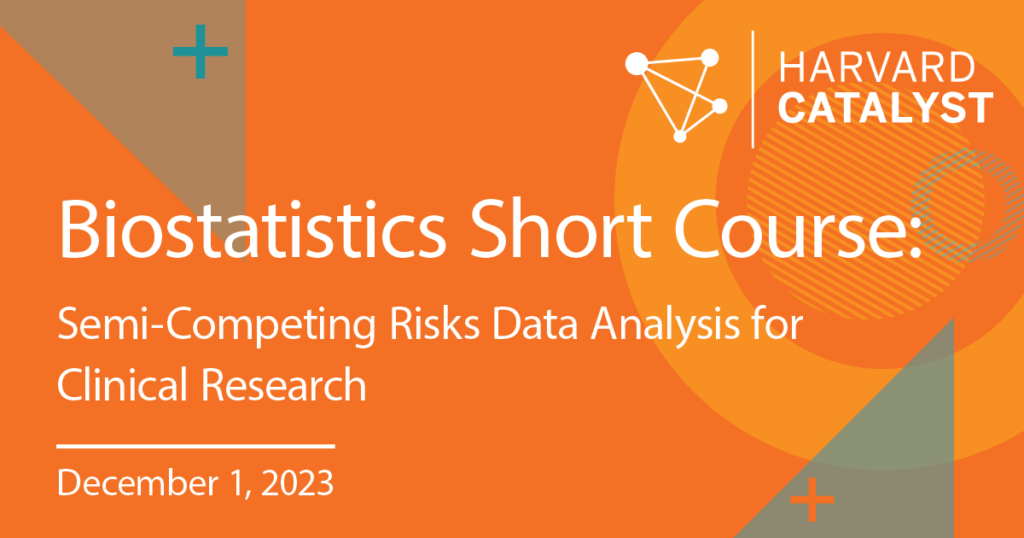
Biostatistics Short Course: Semi-Competing Risks Data Analysis for Clinical ResearchFriday, December 1, 20239:00 am – 1:00 pmRegister nowDiscussion will be led by Sebastien Haneuse, PhD, of Harvard T.H. Chan School of Public Health, and Harrison Reeder, PhD, of Massachusetts General Hospital.This short course will provide an overview of semi-competing risks data analysis. Briefly, semi-competing risks corresponds to the setting where primary interest lies in some non-terminal event, the occurrence of which is subject to a terminal event. Although not as well-known as standard competing risks, semi-competing risks arise in any study of any event that is not mortality but where the force of mortality is strong. Examples include: Alzheimer’s disease in the elderly; quality of end-of-life care among patients with a terminal cancer diagnosis; graft-versus-host disease among bone marrow transplant recipients; and, developmental outcomes among infants admitted to a NICU. Semi-competing risks also arise in some settings where the terminal event is not mortality. In studies of preeclampsia, for example, “delivery” is a competing risk but not vice-versa.In this workshop, Haneuse and Reeder will cover basic concepts of semi-competing risks, various modeling strategies, methods for prediction, and software. In addition, they will apply and illustrate the methods to a study of preeclampsia using data from the Beth Israel Deaconess Medical Center, specifically with the goals of quantifying risk factor associations and the joint prediction of preeclampsia and delivery.Prerequisites:While the short course is intended to be accessible to a broad audience, the primary audience is generally researchers who are engaged in studies involving time-to-event outcomes. As such, at a minimum, familiarity with standard notions/methods in time-to-event data analysis (e.g. censoring and hazard functions) will be important. Additionally, familiarity with concepts related to the analysis of longitudinal or cluster-correlated data (e.g., dependence and mixed effects models) would be helpful.Speakers:Sebastien Haneuse, PhD, Harvard T.H. Chan School of Public HealthHarrison Reeder, PhD, Massachusetts General Hospital



